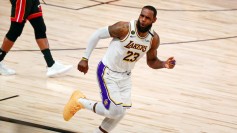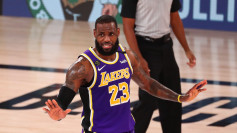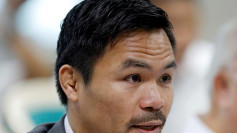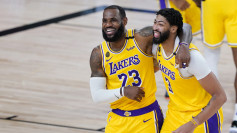This year's Super Bowl commercials are veering away from politically charged themes, opting instead for star-studded casts, humor, and the allure of celebrity culture, including a nod to pop icon Taylor Swift. In a strategic shift from previous years where brands occasionally used the Super Bowl platform to address social causes, the focus is now firmly on entertainment and broad appeal, avoiding the pitfalls of divisive topics.
Kim Whitler, a marketing professor at the University of Virginia and a former Procter & Gamble executive, highlighted the precarious nature of navigating politically charged messages in today's polarized environment. "The pendulum swings. First, it was 'we don't do enough,' and now it's swinging back," she remarked, indicating a return to more neutral, universally appealing content.
Budweiser, for instance, is reprising its iconic Clydesdale horses for its Super Bowl spot, a marked departure from its 2017 commercial that depicted the brand's founder facing xenophobia upon arriving in America. Similarly, Michelob Ultra is set to feature a lighthearted ad starring soccer legend Lionel Messi, emphasizing entertainment over advocacy.
The burgeoning romance between Taylor Swift and Kansas City Chiefs tight end Travis Kelce has captured the public's imagination, providing an additional layer of intrigue to the NFL's championship game between the San Francisco 49ers and Kansas City Chiefs. Charles R. Taylor, a marketing professor at Villanova University, noted the potential for brands to capitalize on this storyline, given Swift's significant influence and the attention her presence has brought to the NFL.
The cost of a 30-second commercial spot remains steep, with prices hovering around $7 million, mirroring last year's rates. The hefty price tag reflects the Super Bowl's unparalleled reach and the premium placed on capturing the attention of its diverse audience.
Bud Light is introducing a humorous narrative featuring the "Bud Light Genie," who transforms a group of friends' night into an adventure filled with celebrity cameos, including Post Malone and Peyton Manning. This approach follows a tumultuous period for the brand, which faced backlash for a previous ad campaign. "We're leaning a little bit harder into the humor this year," said Todd Allen, Bud Light's senior vice president of marketing, signaling a strategic pivot towards light-hearted content.
In contrast, Google is opting for a heartwarming angle, showcasing the capabilities of artificial intelligence (AI) through a commercial that demonstrates how a blind man can take a selfie using an AI feature on Google Pixel phones. This narrative not only highlights the technology's potential but also taps into the current discourse around AI's ethical use and societal impact.
While corporate advertisers are steering clear of contentious issues, at least two nonprofits are seizing the opportunity to address serious matters. The Foundation to Combat Antisemitism and People for the Ethical Treatment of Animals (PETA) are among those airing commercials, using the contrast with lighter ads to emphasize their messages.
As the Super Bowl attracts a wide array of viewers, including a significant female demographic potentially drawn by the Swift-Kelce storyline, advertisers are tailoring their messages to resonate with a broad audience. The shift towards entertainment and away from political messaging reflects a strategic adaptation to the current cultural climate, aiming to unite viewers through shared moments of humor, awe, and warmth.




